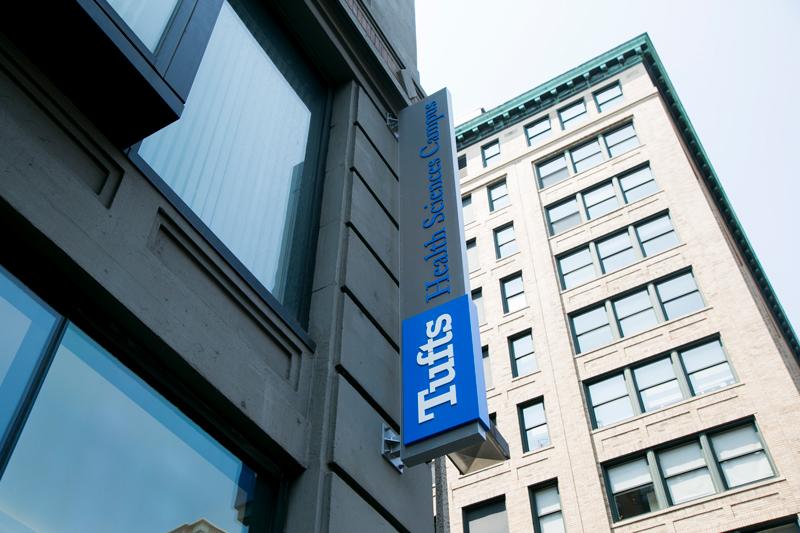-
About
- Departments & Offices
-
Academics
- Physician Assistant
- Special Master’s (MBS)
-
Admissions & Financial Aid
- Tuition & Fees
-
Student Experience
-
- Student Resources by Program
- Academic & Student Support
- Wellness & Wellbeing
- Student Life
- Events & Traditions
-
-
Research
- Research Labs & Centers
-
Local & Global Engagement
- Global Health Programs
- Community Engagement
Students participate in interprofessional workshop to explore health inequities in the United States
Tufts students in the Physician Assistant (PA) and Doctor of Physical Therapy (DPT) Boston programs recently participated in a workshop where they explored health inequities in the United States through an interprofessional approach.

The group of 130 students—50 PA students and 80 DPT-Boston students—came together virtually to learn about roles and responsibilities of each other’s profession, practice teamwork and collaboration, and get a glimpse into hardships faced by Americans every day.
The students worked through SPENT, an online game that aims at illustrating what it takes to survive poverty and homelessness in which players make a series of life decisions based on a monthly income of $1,000.
Students worked in interprofessional groups of five or six to complete the activity, then discussed the impact and relevance of their decision making and the impact of poverty on health and healthcare.
“My biggest takeaway was the realization that different professions have different perspectives on factors affecting health inequality,” said Bryan Currie, current student in the DPT-Boston program.
This workshop is one of several others that take place throughout the year between academic programs under the School of Medicine that aim in preparing students to understand the importance of interprofessional communication, coordination, and collaboration when making health care decisions.
“Learning about the roles and responsibilities of other professions leads to a culture of mutual respect amongst professions, promotes a team approach to patient care, and fosters relationship building,” said Rayne Loder, assistant professor of public health and community medicine in the PA program. “This leads to health care workers who are committed to delivering patient-centered and population-centered health care that is safe, efficient, effective, and equitable.”
“I have always believed that optimal patient centered care is best achieved when there is a strong sense of interprofessional collaboration in the clinical setting,” said Jeffrey Solius, current student in the PA program. “Healthcare professionals that work in a team setting empower one another, close communication gaps that exist, cut healthcare costs; and most importantly, improve patient outcomes. As a future PA, knowing the scope of practice of my future colleagues will certainly help me to decrease communication gaps between myself and team members. Additionally, having the ability to empower one another is crucial in providing optimal patient centered care. The workshop allowed me to see these significances firsthand.”
Faculty from both programs hope to make interprofessional events regular part of their curricula and are working on additional interprofessional educational offerings that will include additional disciplines.